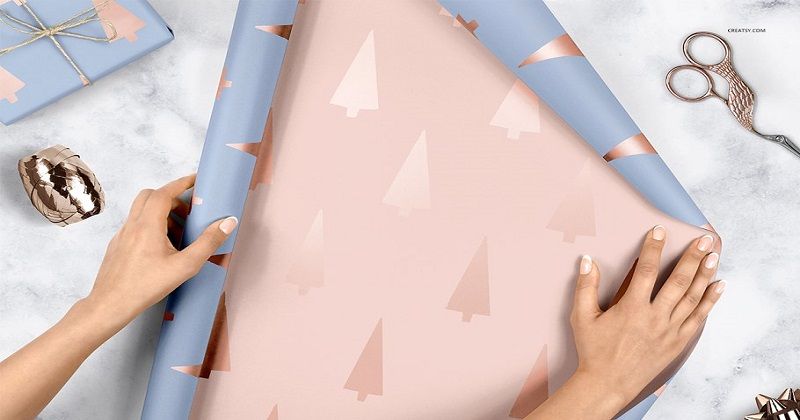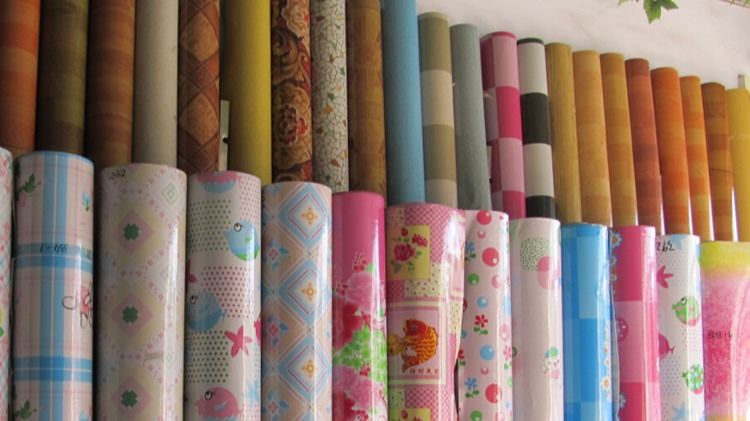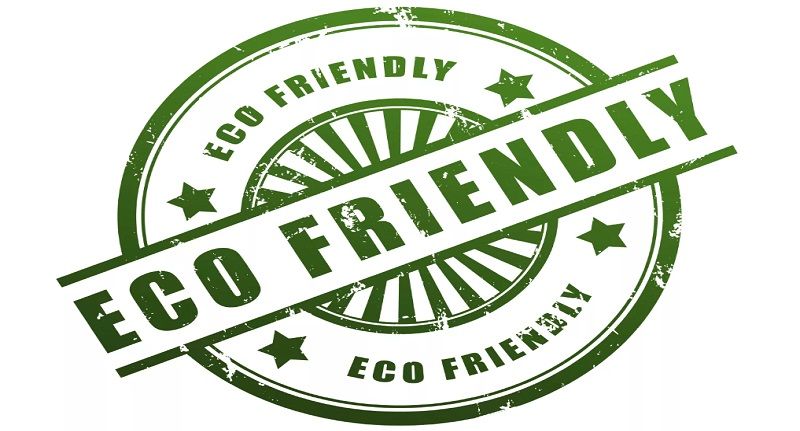Is Wrapping Paper Recyclable: Exploring Sustainable Gift-Wrapping Options
Gift-giving is a cherished tradition that brings joy and excitement to special occasions. One common aspect of gift-giving is wrapping paper, which adds an element of surprise and anticipation.
However, with growing environmental concerns, it is essential to examine the sustainability of wrapping paper and explore alternative options.
In this article, we delve into the recyclability of wrapping paper and provide insights into eco-friendly alternatives that can help reduce waste.
Table of content
Understanding Wrapping Paper Composition

To determine the recyclability of wrapping paper, it's crucial to understand its composition. Traditional wrapping paper is often made from a combination of materials, including paper pulp, dyes, and additives.
While some wrapping papers are recyclable, many contain non-recyclable elements, such as metallic or plastic coatings, glitter, and foil accents.
These non-recyclable components pose challenges when it comes to proper recycling.
Recyclability of Wrapping Paper
The recyclability of wrapping paper varies depending on its composition. Plain paper wrapping without any embellishments or coatings is typically recyclable.
However, wrapping paper with metallic or plastic coatings, glitter, or foil accents is generally not recyclable due to the presence of non-paper elements.
It is important to check with your local recycling guidelines to determine what types of wrapping paper are accepted in your area.
Sustainable Alternatives to Traditional Wrapping Paper

Fortunately, several sustainable alternatives to traditional wrapping paper exist, allowing us to reduce our environmental impact while still adding beauty to gifts. Consider these eco-friendly options:
Recycled Wrapping Paper:
Look for wrapping paper made from recycled materials. These papers are often produced using post-consumer waste, reducing the demand for virgin materials and minimizing the carbon footprint.
Reusable Fabric Wraps:
Embrace the concept of Furoshiki, a Japanese practice of using cloth to wrap gifts. Choose beautiful fabric wraps that can be reused multiple times, making your gift-giving more sustainable and adding an elegant touch.
Newspaper and Magazines:
Give your gifts a unique and creative twist by using old newspapers or colorful magazine pages as wrapping materials. This not only reduces waste but also adds a personal and vintage touch to your presents.
Gift Boxes and Bags:
Opt for reusable gift boxes or bags made from sustainable materials like recycled cardboard or fabric. These options not only eliminate the need for wrapping but also provide a practical and stylish way to present your gifts.
Environmentally Friendly Wrapping Paper Options

If you prefer using wrapping paper, there are eco-friendly options available that prioritize sustainability. Look for the following environmentally friendly wrapping paper alternatives:
Seed Paper Wraps:
Seed paper is embedded with seeds that can be planted after use, providing a delightful surprise for the recipient. These wraps are made from biodegradable materials and contribute to greener spaces.
Plant-Based Wrapping Paper:
Choose wrapping paper made from plant-based materials, such as bamboo or hemp. These papers are renewable and biodegradable, making them a greener choice compared to traditional options.
Unbleached and Chemical-Free Paper: Look for wrapping paper that is unbleached and free from harmful chemicals. This type of paper is minimally processed and has a lower environmental impact.
Creative Gift-Wrapping Ideas

Elevate your gift-giving experience with these creative and sustainable gift-wrapping ideas:
Nature's Touch:
Enhance your gift with natural elements like twigs, dried flowers, or leaves. Use twine or jute string to secure these elements to your gift, creating a charming and eco-friendly presentation.
Fabric Ribbon:
Replace traditional plastic ribbons with fabric ribbons or bows. These can be reused or repurposed for other craft projects, reducing waste and adding a touch of elegance.
Personalized Stamps:
Stamp plain kraft paper with personalized designs or messages using eco-friendly ink. This adds a personal touch to your gift while minimizing waste.
Upcycled Materials:
Get creative by repurposing materials you already have, such as maps, sheet music, or fabric scraps. These unique materials bring a sense of nostalgia and individuality to your gift wrapping.
Why Buy Wrapping Paper from Mikirei

When it comes to gift-giving, the presentation is just as important as the gift itself. Wrapping paper adds that extra touch of excitement and anticipation, creating a beautiful package that delights the recipient.
If you're looking for high-quality wrapping paper that stands out from the rest, Mikirei is the perfect choice.
In this chapter, we'll explore the reasons why you should buy wrapping paper from Mikirei and how it can elevate your gift-giving experience.
Exceptional Quality and Design
Mikirei takes pride in offering wrapping paper that is crafted with exceptional quality and attention to detail. Each design is carefully curated to ensure that it stands out and adds a touch of elegance to your gifts.
Whether you're wrapping a small token of appreciation or a grand gesture, Mikirei's wrapping paper elevates the presentation, making every gift feel extraordinary.
Wide Range of Stunning Designs
At Mikirei, you'll find a wide range of stunning wrapping paper designs that cater to different occasions, personalities, and aesthetics.
From vibrant and playful patterns to sophisticated and minimalist styles, there's something for everyone.
Whether you're celebrating a birthday, anniversary, wedding, or any other special event, Mikirei offers a design that perfectly complements your gift and captures the essence of the occasion.
Environmentally Conscious Practices
One of the standout features of Mikirei is its commitment to sustainability. The wrapping paper offered by Mikirei is made from eco-friendly materials, ensuring that your gift presentation aligns with your values.
By choosing Mikirei's wrapping paper, you contribute to reducing environmental impact and promote a greener planet.
The company prioritizes using recyclable and biodegradable materials, making it an excellent choice for eco-conscious individuals.
Versatility and Creativity
Mikirei's wrapping paper is not limited to traditional gift-wrapping purposes. Its versatility allows you to explore your creativity and use it in various craft projects and DIY endeavors.
The high-quality paper is suitable for origami, scrapbooking, card-making, and other artistic pursuits. With Mikirei's wrapping paper, you can extend the joy and beauty beyond gift-giving, making it a valuable addition to your creative endeavors.
Exceptional Customer Service
When you choose Mikirei for your wrapping paper needs, you can expect exceptional customer service. The team at Mikirei is dedicated to ensuring that your experience is seamless and enjoyable.
They are responsive to inquiries, provide assistance when needed, and prioritize customer satisfaction. Your satisfaction is their utmost priority, making the buying experience from Mikirei a delightful one.
If you want to enhance your gift-giving experience and make a lasting impression, purchasing wrapping paper from Mikirei is a decision you won't regret.
With their exceptional quality, stunning designs, eco-friendly practices, versatility, and outstanding customer service, Mikirei stands out as a premier choice for wrapping paper.
Elevate your gifts with Mikirei's wrapping paper and create memorable moments of joy and excitement for your loved ones.
FAQs About Wrapping Paper Recyclable

Is all wrapping paper recyclable?
Not all wrapping paper is recyclable. Wrapping paper with non-recyclable components such as metallic coatings, plastic coatings, glitter, or foil accents cannot be recycled.
Can I recycle wrapping paper with tape on it?
It is best to remove any tape or adhesive from wrapping paper before recycling. Tape can interfere with the recycling process and reduce the quality of the recycled paper.
Can I compost wrapping paper?
Plain, uncoated wrapping paper made from natural materials can often be composted. However, it is essential to ensure that the paper is free from any non-compostable elements.
Are fabric wraps a sustainable alternative to wrapping paper?
Yes, fabric wraps are a sustainable alternative to wrapping paper. They can be reused multiple times and eliminate the need for disposable wrapping materials.
Where can I find environmentally friendly wrapping paper?
Environmentally friendly wrapping paper can be found at eco-conscious retailers, specialty stores, or online marketplaces that prioritize sustainable and eco-friendly products.
Conclusion
While wrapping paper adds a delightful touch to gift-giving, it is crucial to consider its impact on the environment.
Opting for recyclable and sustainable wrapping paper or exploring alternative options like reusable fabric wraps, recycled paper, or eco-friendly materials allows us to celebrate special occasions while minimizing waste.
Let us embrace these sustainable practices and make a positive contribution towards a greener future.






